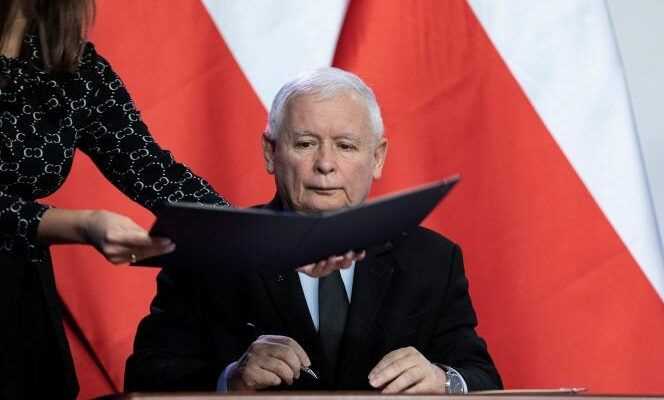After months of arm wrestling, Warsaw retreated under pressure from Brussels. The president of the main party of the conservative coalition in power in Poland, Jaroslaw Kaczynski, announced on Saturday (August 7th) the impending liquidation of the new disciplinary regime for judges, the result of a controversial reform of the Polish judicial system. This decision was requested by the European Union (EU).
“We will abolish the disciplinary chamber [de la Cour suprême] in the form in which it currently operates, and the subject of the dispute [avec l’UE] will thus disappear “, said the chairman of the Law and Justice Party (PiS) in an interview with the Polish press agency PAP. According to him, the first proposals for change should be presented in September.
Threat of financial sanctions
The Court of Justice of the European Union (CJEU) on July 14 ordered Poland to immediately cease the activities of the disciplinary chamber of the country’s Supreme Court, an institution set up as part of a reform of the judiciary. The disciplinary chamber is responsible for overseeing judges, with the power to lift their immunity to expose them to criminal prosecution or reduce their salaries.
The CJEU then ruled, on July 15, that this chamber did not offer “Not all the guarantees of impartiality and independence”, and was “Not immune to direct or indirect influences from the legislative and executive powers”.
But the Polish Constitutional Court defied Brussels, ruling that the interim measures decreed by the CJEU were not “Not compliant” to the Polish Constitution. Subsequently, the European Commission gave Warsaw until August 16 to pledge to abide by CJEU rulings, threatening to seek financial sanctions. This week, the President of the Supreme Court announced the temporary freeze on the activities of the chamber.
“I do not recognize such judgments [de la CJUE], because they definitely go beyond the treaties and extend the jurisdiction of the EU courts ”, underlined Mr. Kaczynski. “However, without a doubt, the subject of the dispute exists”, he admitted.
“It doesn’t mean that this chamber will not work in any form. No one expects this from us, but it will be a whole different body. “
Disagreement within the conservative coalition
The decision to liquidate the disciplinary chamber may however run up against the refusal of Zbigniew Ziobro, Minister of Justice and president of a small coalition party, who is also the main author of this justice reform. Mr Ziobro said on Friday that he refused “Categorically to give in to illegal blackmail” of the EU.
Its refusal could provoke new tensions within the ruling coalition, already weakened by a conflict with the third allied party on the proposals for economic and fiscal reforms to come. Warsaw and Brussels have been at loggerheads for years over the reforms adopted by the conservative nationalist PiS government.
